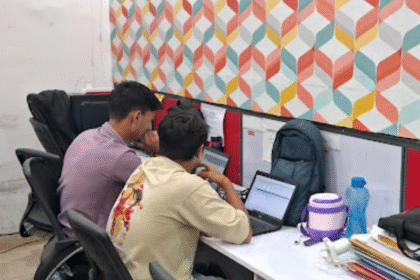In today’s fast-paced workplace, teamwork and leadership are two of the most valuable assets an organization can cultivate. A strong team dynamic and effective leaders are the driving forces behind innovation, productivity, and long-term success. However, building these skills requires more than meetings, training manuals, or motivational speeches. It demands experience, interaction, and trust, all of which can be developed through engaging team-building activities.
One creative and highly effective approach to fostering teamwork and leadership is organizing a Mini Olympics. This fun, energetic event borrows the spirit of the Olympic Games and adapts it into a corporate or school setting to build unity, collaboration, and leadership in an enjoyable way.
This article explores how a Mini Olympics improves teamwork and leadership, the psychological and organizational benefits behind it, and practical tips for organizing one that truly strengthens your team.
What Is a Mini Olympics?
A Mini Olympics is a structured series of games or activities modeled after the Olympic Games but tailored for smaller groups such as companies, schools, or community organizations. Participants are divided into teams that compete in various physical, mental, and strategic challenges designed to promote collaboration, communication, and friendly competition.
Unlike traditional sports events, the focus of a Mini Olympics is not athletic excellence but team spirit, creativity, and problem-solving. Events can include relay races or obstacle courses, trivia challenges, tug-of-war, sack races, balloon tosses, puzzle-solving games, or even strategy-based competitions. Each event contributes to the development of teamwork and leadership skills by encouraging participants to work together, communicate effectively, and rely on each other’s strengths.
Why a Mini Olympics Works for Team Building
The Mini Olympics model is so effective because it brings people together in a shared, goal-oriented, and high-energy environment. When people participate in challenges that require collaboration, they quickly learn the value of unity, adaptability, and trust.
Unlike typical office tasks, these activities remove hierarchical barriers. Executives, managers, and employees compete side by side, breaking down social walls and fostering genuine connections. This equal playing field promotes respect, empathy, and appreciation, essential ingredients for strong teamwork and leadership.
The Connection Between Teamwork and Leadership
Teamwork and leadership are deeply intertwined. Effective teams rely on leadership for direction, motivation, and decision-making. Likewise, great leaders rely on teamwork to execute vision and achieve results. Through a Mini Olympics, participants experience both roles, as team members who must collaborate and as emerging leaders who must guide, delegate, and motivate others. These experiences mirror real workplace dynamics, making the lessons directly applicable in professional and educational environments.
How a Mini Olympics Improves Teamwork
A well-organized Mini Olympics is more than just a day of fun. It is a powerful tool for strengthening team relationships and communication.
Every event in a Mini Olympics requires collective effort. Whether it’s planning a strategy for a relay or solving a group puzzle, success depends on cooperation. Team members learn that no one can win alone; they must rely on one another’s strengths and contributions. This collaboration extends beyond the games. As individuals recognize the value of working together in a fun setting, they become more willing to collaborate back at work or school. The shared experience of achieving goals together fosters a sense of unity and mutual respect.
Clear communication is equally crucial during any competition. Teams must discuss strategies, assign roles, and make quick decisions. Miscommunication can lead to confusion, errors, or failure to complete a task, just like in the workplace. Through these challenges, participants learn how to express ideas clearly, listen actively, provide constructive feedback, and coordinate efficiently under time pressure. A Mini Olympics provides a natural training ground for improving both verbal and non-verbal communication, fostering a culture of clarity and understanding within teams.
The event also strengthens problem-solving and adaptability. Unexpected challenges are part of both the Mini Olympics and real-world teamwork. Teams must adapt strategies on the fly, find creative solutions, and make decisions quickly. Whether a team faces a time limit, limited resources, or a sudden rule change, these moments teach adaptability and critical thinking. Members learn how to stay calm under pressure, evaluate options, and work collaboratively to overcome obstacles.
Lastly, the Mini Olympics fosters a positive and supportive environment. Friendly competition brings excitement, laughter, and enthusiasm to the group. The atmosphere of celebration and teamwork during a Mini Olympics strengthens relationships and builds a sense of belonging. When colleagues cheer for each other, celebrate small victories, and show sportsmanship, it creates a ripple effect that extends to daily work life. Teams become more encouraging, supportive, and positive, which are essential traits for productivity and morale.
How a Mini Olympics Builds Leadership Skills
While teamwork thrives on collaboration, leadership drives direction. The Mini Olympics is not just a test of physical skill; it’s an opportunity for participants to step up, make decisions, and inspire others.
During a Mini Olympics, leadership emerges naturally. Some individuals take initiative to organize, motivate, and strategize. These natural leaders may not always be the ones in managerial positions; sometimes they are quiet team members who shine when given a chance. The event reveals these leadership qualities, allowing organizations to identify potential leaders who can be nurtured for future roles.
Each challenge requires quick thinking and sound decision-making. Leaders must assess the situation, make choices under pressure, and take responsibility for the outcome. This mirrors real leadership scenarios in professional life. Through the Mini Olympics, participants practice making decisions with confidence, learning to balance risk, teamwork, and timing, all of which are essential leadership attributes.
Good leaders also know they cannot do everything themselves. In the Mini Olympics, delegation is key. Whether assigning runners for a relay or choosing who answers a quiz round, leaders must recognize the strengths of their team members and allocate roles effectively. This teaches the importance of trusting others and empowering teammates, two qualities that distinguish effective leaders from micromanagers.
Confidence and initiative are also developed through action, not theory. The Mini Olympics challenges individuals to step out of their comfort zones, to speak up, lead, and take charge. As participants take initiative and succeed, their self-confidence grows. This translates into the workplace, where they become more proactive in meetings, projects, and management roles.
Finally, competition can sometimes lead to disagreements or differing opinions. Leaders in a Mini Olympics must manage these situations calmly and fairly, finding solutions that satisfy everyone and keep morale high. This experience teaches the importance of diplomacy, fairness, and maintaining team harmony, crucial leadership skills for any professional environment.
The Psychological Benefits of a Mini Olympics
Beyond teamwork and leadership, the Mini Olympics has profound psychological effects that strengthen workplace culture and morale. It boosts motivation, reduces stress, increases job satisfaction, and fosters belonging. The excitement and challenge stimulate engagement and enthusiasm. Physical activity and laughter release endorphins, improving mood and reducing workplace tension. Employees who feel connected and valued through such activities are more satisfied and productive, and shared experiences create stronger emotional bonds and a sense of community.
These emotional benefits make teams more cohesive, resilient, and motivated long after the event ends.
Real-World Applications and Organizational Benefits
Many leading organizations use Mini Olympics-style events as part of their leadership and team development programs because the format works in multiple contexts. It is highly effective for corporate training because it encourages leadership development through real-time challenges. It enhances employee engagement by strengthening relationships across departments. It also supports change management, helping teams adapt and collaborate during transitions. Additionally, it can be used in onboarding programs to integrate new employees into the company culture more quickly. These activities humanize the workplace, turning colleagues into allies and leaders into mentors.
Steps to Organize a Successful Mini Olympics
If you’re considering implementing a Mini Olympics in your workplace or school, proper planning is essential. Begin by defining clear objectives. Decide what you want to achieve, such as improving teamwork, identifying leaders, or boosting morale. Once your goals are established, form diverse teams that mix departments, roles, or experience levels to encourage networking and collaboration across boundaries.
Choose a balanced selection of physical, mental, and creative challenges such as relay races, puzzle-solving games, trivia contests, or communication-based challenges. Establish clear rules and a transparent scoring system to ensure fairness and healthy competition. Encourage each team to appoint a leader or captain, which promotes accountability and leadership development.
After the event, make sure to celebrate achievements and recognize both winners and participants. Offer awards not only for performance but also for categories like best team spirit or outstanding leadership. Finally, host a short debrief session where participants can reflect on lessons learned and discuss how to apply them in their daily work or studies.
The Long-Term Impact on Team Culture
When done right, a Mini Olympics doesn’t just create a day of excitement; it leaves a lasting impact on team culture. The event builds shared memories that become part of the group identity. Employees who participated together often communicate better, collaborate more naturally, and approach challenges with renewed trust. Leadership skills developed through the games continue to influence workplace behavior, fostering initiative, accountability, and motivation.
Over time, this contributes to higher productivity, stronger leadership pipelines, reduced conflict, and a more engaged and positive workforce.
Why It Works: The Science Behind Play and Team Learning
Psychologists have long studied the benefits of play-based learning and experiential training. Engaging in playful competition stimulates creativity, problem-solving, and cooperation because it activates the brain’s social and emotional centers. Research shows that adults learn better through active participation than passive instruction. The Mini Olympics leverages this by combining learning with enjoyment, turning abstract concepts like teamwork and leadership into lived experiences. In essence, when people have fun together, they learn to work together more effectively.
Overcoming Common Challenges
While a Mini Olympics offers many benefits, organizers should plan carefully to avoid pitfalls. It is important to ensure inclusivity by offering a variety of events for different abilities. Focus on fun and learning rather than purely on winning. Prevent cliques by mixing departments or groups. Provide proper safety measures for physical activities and keep the event organized, fair, and well-timed. When managed thoughtfully, these challenges turn into opportunities for creativity and engagement.
Final Thoughts: Turning Play Into Purpose
A Mini Olympics may seem like a day of fun and games, but beneath the laughter and competition lies something far more powerful—growth. It develops teamwork, nurtures leadership, and strengthens the human connections that form the foundation of every successful organization.
Through teamwork, participants learn the importance of communication, trust, and cooperation. Through leadership, they discover how to motivate, strategize, and inspire others. Together, these lessons create stronger teams, better leaders, and a more resilient workplace culture.
Whether you are a business leader, HR professional, teacher, or community organizer, consider hosting a Mini Olympics. It is not just about medals and points; it is about building a united, empowered, and forward-moving team that thrives long after the games are over.




